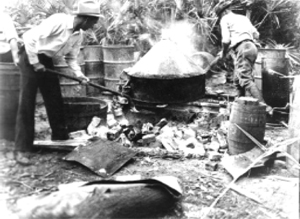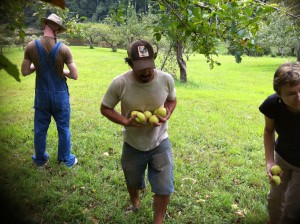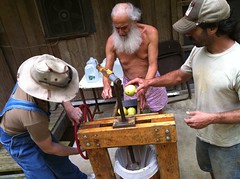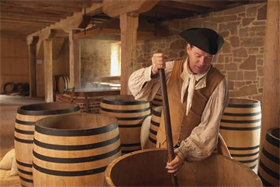Legal moonshine celebrates our agricultural heritage
 The Tennessee Municipal League’s bi-monthly magazine Tennessee Town & City had a nice article in today’s edition featuring Billy Kaufman.
The Tennessee Municipal League’s bi-monthly magazine Tennessee Town & City had a nice article in today’s edition featuring Billy Kaufman.
The article by Victoria South highlights Cannon County’s cultural heritage and legacy we hope to share with the world through Short Mountain Distillery.
“This is about jobs,” said Kaufman, who is the great grandson of iconic Samsonite Luggage founder Jesse Shwayder. “It’s also about tourism, revenue, and the kind of sustainability we need to preserve our way of life. We want to share our local history with the world, and we want tourism to bring new opportunities for local businesses.”
With Cannon County’s rich agricultural heritage, Short Mountain Farm is revered by old-timers for the quality of its moonshine, made from ice cold spring water, which still flows from three springs on the property. Kaufman is hoping to tap this renewable energy source for the distillery’s operations.
“I had been looking for a way to make farming profitable,” he said. “One of my strongest drives is making farming sustainable, having it make sense again. It’s the best way of life there is, but that doesn’t mean it makes financial sense, as it’s structured now. You have to be incredibly skilled and lucky to make a living.”
Heavy regulations and substantial start up costs of several hundred thousand dollars or more could be a formidable obstacle for legal moonshine distillers. “Just getting through all the red tape and hurdles makes it a community endeavor,” Kaufman explains. “It’s also my commitment to my community.”
As part of that commitment, Kaufman plans to hire locally and use locally grown agricultural products.
“Cannon County is full of qualified hard working farmers, factory workers, industrious people, who are already telling me what they can do,” he said. “It’s a great time to harness this tremendous energy of a community doing something that relates to their values close to where they live.”
An increased interest in Tennessee culture and heritage prompted the state Department of Tourism to launch a tourist attraction dubbed “White Lightning Trail,” where drivers traverse a network of roadways spanning hundreds of miles across nine counties in northeast Tennessee. Along the trail, visitors can travel the same routes where bootleggers in hopped up cars, transported illegal moonshine whiskey, rumored to be the inspiration for NASCAR. As tourists visit the various sites, neighbors along the way might be more than willing to swap a moonshining tale or two.
“If people would be willing to drive a little farther, they could come to the place where the history of moonshine is rich and the living history of moonshine, the people, are still alive,” said Kaufman. “Let me tell you, the stories here are rich. Almost everyone in Cannon County can tell you a great story about the moonshine in this area, whether it be the law enforcement against it, or their family struggle to make a living at a time when there was really no other way to make a living. It’s part of this area’s heritage and goes back much further than you think.”
In this weekend’s Murfreesboro Post, Mike Vinson speaks from personal experience on the rich cultural heritage Short Mountain Distillery celebrates.
Indeed, Short Mountain has a long, rich history for producing moonshine.
Having grown up in the Centertown-Blues Hill area of Warren County, about a 20-minute drive from Short Mountain, I, personally, can attest to the “lore” that connects Short Mountain to the craft of whiskey making.
Without going into needless detail and giving up any names, I’ll just say that clear, homemade, high-proof liquor could be purchased at any of several Short Mountain locations back in the day.






 Distilleries have always been a part of American culture. Nearly every single one of our founding fathers distilled spirits, and one of the first taxes they levied on the American people to pay for war and to build our nation was the Whiskey Tax.
Distilleries have always been a part of American culture. Nearly every single one of our founding fathers distilled spirits, and one of the first taxes they levied on the American people to pay for war and to build our nation was the Whiskey Tax.


